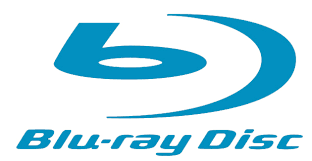 One of the major beefs that many consumers have with Windows Vista is it's poor performance on low end hardware, especially the very popular "Netbooks" that sell in drove recently. At a time when people are not inclined to upgrade their machines because the current ones are already powerful enough for most of their apps, this is bad news, and Windows Vista was shunned by many consumers. The only version of Windows widely sold on Netbooks is Windows XP.
One of the major beefs that many consumers have with Windows Vista is it's poor performance on low end hardware, especially the very popular "Netbooks" that sell in drove recently. At a time when people are not inclined to upgrade their machines because the current ones are already powerful enough for most of their apps, this is bad news, and Windows Vista was shunned by many consumers. The only version of Windows widely sold on Netbooks is Windows XP.
Now Microsoft claimed that Windows 7 would be all different, that there would be a cheap version for netbooks (which is limited to opening 3 application at the same time) but that all versions would run fine on netbooks. It turns out that this is not really the case, especially on netbooks with SSDs
Actually what transpired for the original Netbook demonstration done by Microsoft what that the sample machine had it's ram and storage upgraded from what was commonly sold at the time (and what is still sold now). It now also appears that running Windows 7 ultimate on a netbook is not really a good idea performance wise. I am not surprised since Windows 7 is only an optimized version of Windows Vista, and optimization can only go so far.
It seems now very possible that Microsoft limited the amount of application that Windows starter edition could open simultaneously to 3 because Windows 7 is such a memory hog that opening many application degrades performance dramatically on Netbooks with only 1 GB of memory. The situation is made much worse on machines with SSDs, as these usually don't have a paging file.
as these usually don't have a paging file.
My personal experience is that once you have installed an antivirus, firewall etc... on a netbook running even Windows XP performance will already be inferior to the same netbook with Ubuntu (which doesn't require antivirus). This loss of performance is somewhat acceptable if you really want to run a Windows application however. On the other hand, if the performance loss with Windows 7 is bigger than with XP, it may not be justified so much anymore, as it would then probably be better to buy a full-fledged sub-notebook to run the app.
performance will already be inferior to the same netbook with Ubuntu (which doesn't require antivirus). This loss of performance is somewhat acceptable if you really want to run a Windows application however. On the other hand, if the performance loss with Windows 7 is bigger than with XP, it may not be justified so much anymore, as it would then probably be better to buy a full-fledged sub-notebook to run the app.
Netbooks are supposed to be small, cheap convenient machines for surfing the web and enjoying your media, not full-fledged mini-laptops. I suspect that Windows 7 runs well on the most powerful netbooks, but for me these are already mini laptops!
On the other hand the latest version of Ubuntu, Jaunty Jackalope, contains all drivers for most existing netbooks natively, and it boot and performs quickly even on older equipment and entry level netbooks.
For me the choice is a no brainer: if you don't absolutely need a specific Windows app, go with a Linux netbook. If you absolutely need windows be sure to get either Windows XP, Windows 7 starter or to buy a higher end machine with a large amount of memory (2 Gb minimum!), an hard drive and a maybe decent graphic chipset, not the typical Intel 945 found on 99% of netbooks! Another thing to keep in, mind if you go for starter is that Upgrading to the full version of Windows 7 is NOT a good idea unless you have the hardware to match.
Windows 7 starter or to buy a higher end machine with a large amount of memory (2 Gb minimum!), an hard drive and a maybe decent graphic chipset, not the typical Intel 945 found on 99% of netbooks! Another thing to keep in, mind if you go for starter is that Upgrading to the full version of Windows 7 is NOT a good idea unless you have the hardware to match.
Image cc by Taller_Hikari












 Many US people seems to be puzzled by the attempt of the EU to regulate what Microsoft can bundle in Windows, and some consider that it is making double standards compared to other minor players such as Linux or Apple.
Many US people seems to be puzzled by the attempt of the EU to regulate what Microsoft can bundle in Windows, and some consider that it is making double standards compared to other minor players such as Linux or Apple.




























